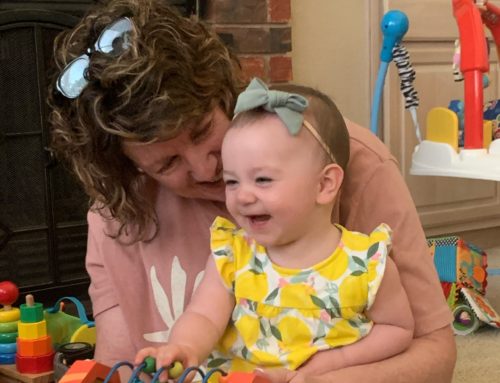“But, Mom, you don’t understand!” “Dad, why don’t you let me do anything?!” Chances are, you said this as a kid, as have your kids. I’ll never forget arguing with my young daughter after she smooched a boy and told me, “Oh, Dad, you don’t know boys!” How could I? I’m just a grown boy. Ah, the wisdom of teenagers.
Even if your kids can’t yet grasp the legacy you’re trying to pass down, there’s one thing – the best thing – you can do to prepare them to embrace it when they’re ready. It’s not breaking their bad habits . . . it’s bonding with their heart.
Why bonding matters
In Families and Faith: How Religion is Passed Down across Generations, Vern Bengtson researches why some families pass down their faith, while others don’t. His conclusion after tracking 350 families for four decades: faith legacies continue most when kids bond with their parents, especially their fathers. Despite vast societal changes, these “bonded” kids are more likely to continue their families’ faith than leave it because they’re open to your faith.
Preparing kids to embrace faith legacies is much like recruiting team members at work. Too many applicants try to convince me, instead of first leading me to be receptive, creating intrigue for me to want to know more, and connecting with me once I’m interested. So too, too many parents try to convince kids, instead of creating an environment of openness.
Creating openness isn’t convincing, cajoling, or convicting. It’s being a conduit – God’s instrument for transformation. Sometimes, that has to start with apologizing. Other times, forgiving or recommitting. And even though we must lead ourselves well in order to lead our kids well, please don’t wait until you’re ready. Start right where you are with three keys: Receptivity, Intrigue, and Connection.
3 keys to bond with our kids
- Receptivity
First, create receptivity. We easily involve kids in what we enjoy, but we need to learn to love what they love. For example, it was easy to share root beer floats and rides in my two-seater convertible, but I learned to love jazz when my son became a jazz musician. Same with my kids’ choir concerts, band competitions, and other “acquired” interests. All became tools for receptivity because my family needed to bond with me in order to bond with my Lord.
- Intrigue
Next, create intrigue. Like a great musician or speaker, make lasting impressions that cause kids to want more. Not overloading. Not answering questions they haven’t asked. Not being mysterious. We steadily unpack the mysteries of life and Scripture in ways they increasingly grasp. We’re not controlling them with a corrective fix; we’re cultivating a thirst for a compelling future.
- Connection
After creating receptivity and intrigue, godly legacies need connection – the gateway to relationships. Kids forget our speeches on conduct, but they remember our spirit of connection. Much to my surprise, my kids didn’t just want to know about my life; they wanted to know me. Successes and failures. Strengths and weaknesses. Qualities and warts. Kids want to know we’re real in order to know if our faith is real.
Bonding begins with why. We’re not trying to win popularity contests, post successes on Facebook, or avoid the shame of broken kids. We’re bonding with them so that they want to bond with God. We do our part to create openness so that they’re open to letting God do His part. Then, even when our all-wise teenagers think we can’t possibly understand their problems, they can believe we understand something far more important – their heart.
Questions: How well do you know your kids’ hearts, and how well do they know yours? What is one thing you can do to help them be open to the faith you want them to carry on?






Leave A Comment